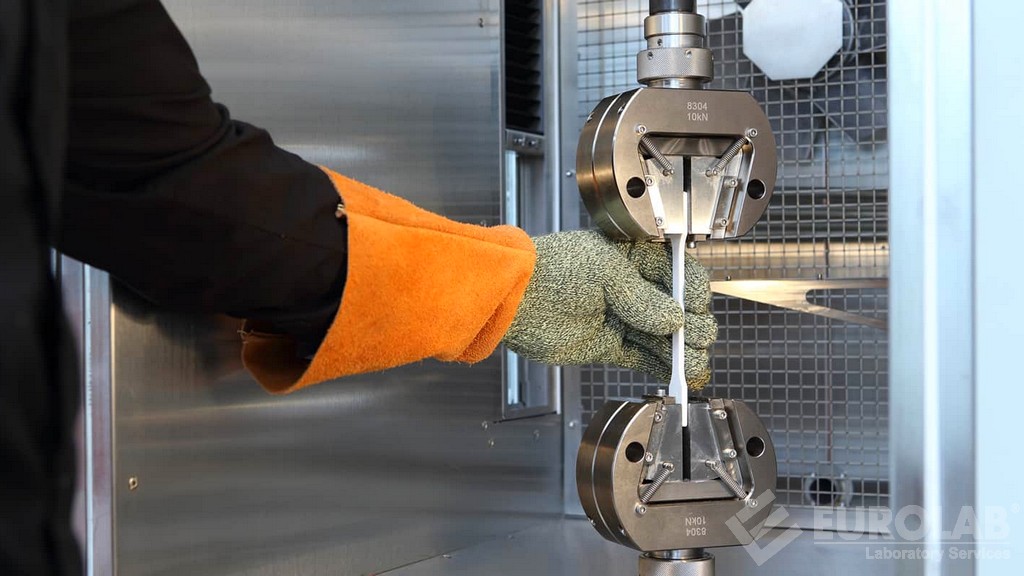DIN 51394 Anti-Corrosive Additives Performance Test
The DIN 51394 test is a critical procedure used in the oil and gas sector to assess the performance of anti-corrosive additives. This method is particularly important for ensuring that chemicals used in production processes are effective in preventing corrosion, which can lead to costly operational disruptions and equipment failures.
Corrosion in the oil and gas industry is a major concern due to the harsh environments encountered during extraction, processing, and transport of hydrocarbons. Corrosive conditions arise from high temperatures, pressure fluctuations, and the presence of water and oxygen, all of which can lead to rapid degradation of materials used in pipelines, storage tanks, and other equipment.
The DIN 51394 test evaluates how well an anti-corrosive additive protects metal surfaces against corrosion. It involves exposing a metal specimen to a corrosive environment that mimics real-world conditions found in oil and gas production facilities. The performance of the additive is then assessed based on its ability to prevent or reduce corrosion.
The test procedure typically follows these steps:
- Selection of appropriate metals for use as specimens, such as carbon steel or stainless steel.
- Preparation of the metal specimens by cleaning and conditioning them according to specified standards.
- Addition of a known quantity of anti-corrosive additive to a controlled environment where corrosion is expected to occur.
- Exposure of the specimen to a corrosive solution for a predetermined period, usually 24 or 72 hours.
- Evaluation of the specimen's condition post-exposure. This includes visual inspection and measurement of any weight loss or changes in surface appearance due to corrosion.
The results are compared against control specimens that do not receive the anti-corrosive additive, allowing for a direct assessment of the additive’s effectiveness. Compliance with DIN 51394 is essential for ensuring that additives meet stringent quality standards and can be relied upon in critical applications within the oil and gas industry.
The test provides valuable insights into the performance characteristics of anti-corrosive additives under various conditions, enabling manufacturers to optimize their formulations and improve product reliability. By adhering to this standard, producers ensure that their products are not only effective but also meet international quality benchmarks.
Benefits
The DIN 51394 Anti-Corrosive Additives Performance Test offers numerous benefits for companies involved in the oil and gas sector. These include:
- Enhanced Reliability: By ensuring that anti-corrosive additives perform effectively, this test helps to prevent costly operational disruptions caused by corrosion.
- Informed Decision-Making: Data from DIN 51394 testing provides valuable information for quality managers and R&D engineers, aiding in the selection of appropriate additives and optimization of formulations.
- Compliance Assurance: Compliance with this standard ensures that products meet international quality benchmarks, enhancing market credibility and customer trust.
- Potential Cost Savings: By reducing the likelihood of corrosion-related failures, DIN 51394 testing can lead to significant cost savings in terms of maintenance, repairs, and replacements.
- Safety Improvements: Effective anti-corrosive additives contribute to safer operations by preventing potential hazards associated with corrosion in high-risk environments.
In summary, the DIN 51394 test is a vital tool for ensuring that anti-corrosive additives meet strict performance criteria, thereby enhancing reliability, compliance, and safety within the oil and gas industry.
Eurolab Advantages
At Eurolab, we pride ourselves on offering comprehensive testing services tailored to meet the unique needs of the oil and gas sector. Our DIN 51394 Anti-Corrosive Additives Performance Test is conducted by highly skilled professionals using state-of-the-art equipment and facilities.
- Expertise: Our team of chemists and engineers possess in-depth knowledge of anti-corrosive additives and their role in oil and gas production processes, ensuring accurate and reliable test results.
- Accurate Results: Utilizing precise measurement techniques and advanced analytical instruments, we deliver consistent and reproducible results that are crucial for quality control and product development.
- Comprehensive Support: From initial consultation to final reporting, Eurolab provides full support throughout the testing process. Our comprehensive reports include detailed analyses and recommendations based on test outcomes.
- International Recognition: Our laboratory is accredited by leading organizations such as ISO/IEC 17025, ensuring that our services meet the highest international standards.
- Custom Solutions: We understand that every company has unique requirements. Eurolab offers custom testing solutions to cater specifically to your needs, whether you are a small startup or a large multinational corporation.
With Eurolab’s DIN 51394 test services, you can be confident in the quality and performance of anti-corrosive additives used in your operations. Our commitment to excellence ensures that you receive accurate, reliable results that contribute to the success of your business.
International Acceptance and Recognition
The DIN 51394 test is widely recognized across Europe and internationally for its role in ensuring the quality and performance of anti-corrosive additives. This standard is part of a broader set of guidelines that help maintain high standards of safety, reliability, and efficiency within the oil and gas industry.
ISO/IEC 17025 accreditation ensures that Eurolab’s testing services meet stringent international standards for competence and quality. This certification guarantees that our tests are conducted in a controlled, consistent manner, producing reliable results that can be trusted by clients worldwide.
The DIN 51394 test is particularly important because it addresses the specific challenges faced by oil and gas producers. By adhering to this standard, companies demonstrate their commitment to using high-quality additives that will perform effectively under harsh operating conditions. This not only enhances operational reliability but also contributes to environmental sustainability by minimizing waste and resource consumption.
Furthermore, compliance with DIN 51394 is a requirement for many regulatory bodies worldwide. Meeting these standards ensures that your products are acceptable in global markets, enhancing your competitive position and facilitating international trade.





